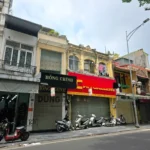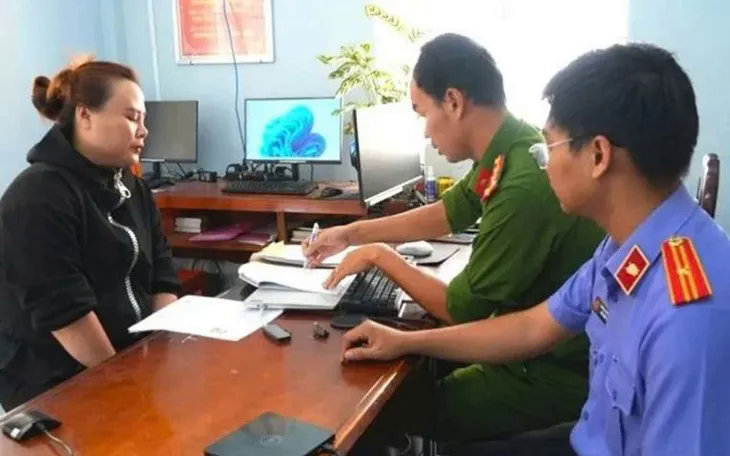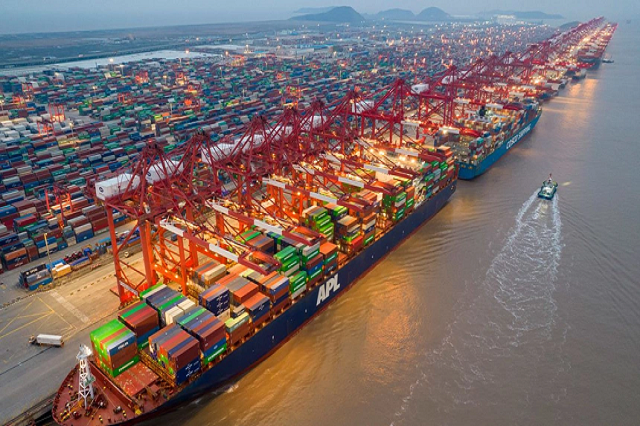In the policy proposal for the Law on Tax Administration (replacing the previous law), the Ministry of Finance proposed a group of innovative policies to manage super-small businesses, including business households and individual businesses.

The Ministry of Finance proposed new regulations for business households and individual businesses. Illustration
Regarding the implementation solutions, the Ministry of Finance clearly stated the elimination of the regulation on lump-sum tax for business households and individual businesses. It also suggested supplementing regulations on accounting and invoice regimes, assigning the Government to detail them. For business households and individual businesses with an annual revenue of VND 1 billion or more, a simple accounting regime shall be applied as prescribed for small and medium-sized enterprises in Circular No. 88/2021/TT-BTC.
Use e-invoices with the code of the tax authority (for business households selling goods and providing direct services to consumers, use e-invoices created from cash registers that connect and transfer data to the tax authority from June 1, 2025, as prescribed in Decree No. 70/2025/ND-CP or e-invoices without the code). of the tax authority)
For business households and individuals with revenue subject to value-added tax (from VND 200 million/year to less than VND 1 billion/year), e-invoices with or without the code of the tax authority shall be applied, or e-invoices created from cash registers if the business household has the condition to implement, or bills of sale. The conditions for e-invoices are met, or simple invoices are allowed for business households to establish “electronic receipts for goods sold” via app, Zalo, SMS, or templates with QR codes as prescribed by the Government.
The above regulations are proposed to take effect from January 1, 2026, to December 31, 2026. Business households must also implement a roadmap for applying e-invoices created from cash registers with data connection to the tax authority.
The Ministry of Finance also proposed to amend and supplement regulations on the principles of applying e-invoices. Accordingly, from the beginning of 2027, business households and individuals with an annual turnover of VND 800 million or more must apply for invoices created from cash registers connected to the tax authority when selling goods and providing direct services to consumers.
By the beginning of 2028, business households and individuals with a turnover threshold subject to value-added tax up to VND 800 million must apply for invoices created from cash registers connected to the tax authority when selling goods and providing direct services to consumers.
According to the Ministry of Finance, the above tax management method will positively affect budget revenue. By the end of December 2024, there were about 3.6 million business households and individuals nationwide that were being tax-managed, of which the number of stable business households was 2.2 million.
The average lump-sum tax amount is currently about VND 672,000 – VND 700,000/month/household, while the average tax amount according to the declaration method is about VND 4.6 million/month/household, i.e., nearly 7 times higher. The total contribution of business households to the state budget in 2024 was about VND 25,953 billion. Thus, lump-sum tax is still the most popular method for business households, but the tax amount collected by the declaration method is many times higher than that of lump-sum tax. This shows a huge gap in reflecting actual revenue and tax obligations between these two forms.
According to the Ministry of Finance, from June 1, 2025, business households with an annual revenue of VND 1 billion or more will have to switch to tax declaration and use e-invoices. At the same time, from January 1, 2026, the lump-sum tax method will be officially abolished and replaced by the declaration method to ensure transparency in business activities and improve tax administration.
“Eliminating the lump-sum tax method and switching all business households to the self-declaration and self-payment tax method according to actual revenue is necessary to ensure proper and sufficient tax collection and prevent budget leakage, especially for large households that previously paid low taxes due to fixed lump-sum tax rates,” the Ministry of Finance said.
Business households will have to perform tax declaration obligations according to current regulations, use e-invoices in transactions for the sale of goods and services, and apply a simple bookkeeping regime to record revenue and expenses for tax calculation.
According to the drafting agency, eliminating the lump-sum tax method not only increases transparency but also opens up opportunities for business households to become enterprises. When they are obliged to apply the declaration method, business households will gradually get used to a proper financial management regime – an important premise for developing into small and super-small enterprises and thus accessing business support policies according to Resolution No. 198/2025/QH15.
By completely eliminating the lump-sum tax method, the Ministry of Finance said that this solution would end a serious injustice when the tax of the declaring households is up to 7 times higher than that of the lump-sum tax households, thereby effectively preventing budget leakage from large business households.
Modernizing Tax Collection: Embracing Digital Solutions with Electronic Invoicing from POS Systems
Let me know if you would like me to tweak it further or provide additional suggestions.
The Tax Department requests that providers of electronic invoicing solutions take a proactive role in coordinating, offering technical support, and closely accompanying the implementation of electronic invoices initiated from cash registers, especially for retail businesses.
The Once Bustling Hanoi Business District is Now Deserted.
In recent times, bustling business streets in Hanoi have fallen unusually quiet. Many businesses have temporarily shut down, not due to a lack of customers, but as a response to the new tax policies and mandatory requirements for electronic invoices. Additionally, the city’s crackdown on counterfeit goods has prompted traders to swiftly standardize their operations.
[Photo Essay]: Businesses in Thanh Hoa Province Shut Down en Masse to Wait and See
The new tax policy and intensified anti-smuggling and counterfeiting efforts have prompted many businesses in Thanh Hoa City to pause their operations temporarily. They are awaiting further instructions and closely monitoring the situation, indicating a cautious approach amidst changing regulations.






![[Photo Essay]: Businesses in Thanh Hoa Province Shut Down en Masse to Wait and See](https://xe.today/wp-content/uploads/2025/06/z667817717-150x150.jpg)














